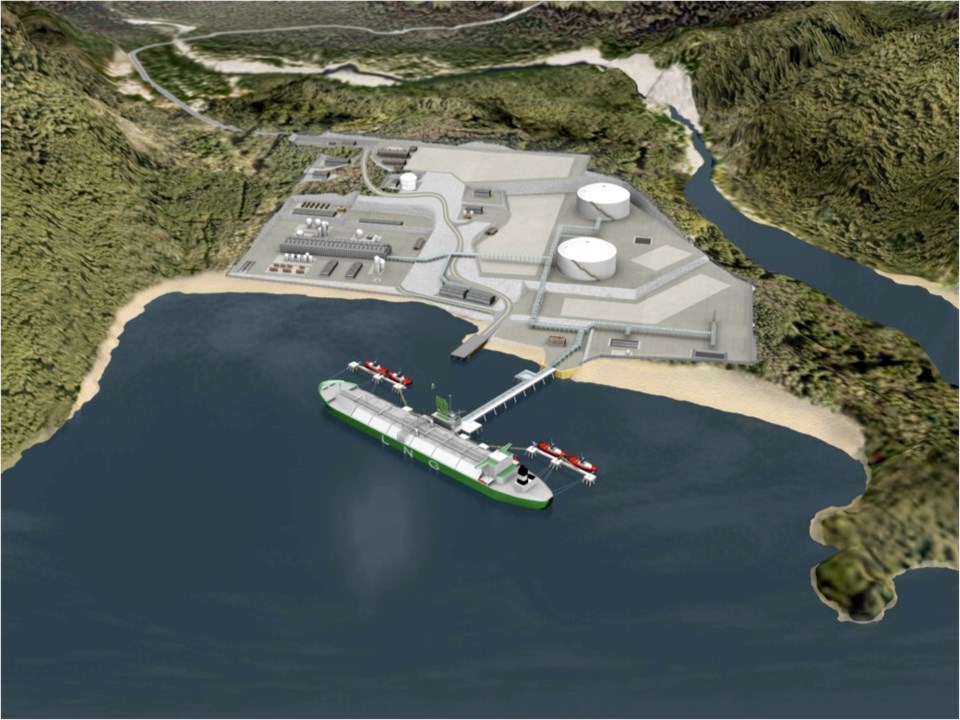 ‘Who could have credibly predicted that oil would lose half of its value in a matter of months?” the government of B.C. plaintively wondered aloud on Tuesday.
‘Who could have credibly predicted that oil would lose half of its value in a matter of months?” the government of B.C. plaintively wondered aloud on Tuesday.
The rhetorical question was in the throne speech that opens the legislative session, under the heading “The Plan.” It had a certain poignancy, given that oil prices are linked to natural-gas prices. And natural-gas prices determine the fate of the epic liquefied-natural-gas plan, a vision that has been sketched out countless times over the past two years, but still hasn’t taken shape.
The question implies a lot of follow-up questions that weren’t asked on opening day but are hanging in the air.
Who could have predicted that the trillion-dollar LNG dream would be more than a little oversold? Who could have predicted that a government would confidently bank on a future of limitless prosperity before the first tanker left port?
Who could have predicted that “Debt-free B.C.” is a lot easier to paint on the side of a campaign bus than it is to realize in real life?
Maybe the oil drop is just a blip and the economic basis for LNG will re-establish itself and the freaked-out investors will step up and make the calls. They’ll be a little behind schedule, but even one final investment decision from the 18 or so players in the game could be counted as a win.
Meanwhile, there is a distinct feel of a government marking time while it waits for companies around the world to sit down at the table they spent the past few years setting.
Exactly two years ago, the B.C. Liberal throne speech devoted seven rapturous paragraphs to the idea of seizing “one of the greatest economic opportunities our province has ever seen.”
The idea was to add value to B.C.’s huge gas surplus, convert it for shipment to Asia and make a killing.
“A possible $1 trillion in cumulative GDP benefit ... 39,000 new full-time jobs during the nine-year construction period ... 75,000 new annual full-time jobs.”
B.C.’s share of the profits could exceed $100 billion over 30 years, and the money was all going to be deposited in the brand-new Prosperity Fund.
“This will be a transformational change for our province, and we cannot afford to be shortsighted.”
This year, the LNG dream got five brisk sentences, none with any news in them.
It “could” create 100,000 jobs, it’s a generational opportunity and the companies “continue the work necessary to bring these projects to life.”
It was the sixth throne speech in a row to mention LNG in some fashion, but there is still no definite plan to build an LNG plant.
Premier Christy Clark said later the government is working behind the scenes with proponents on project-development agreements. The price of oil has a complex impact, “some good, some perhaps not” on the vision, she said.
With no big “I have a dream” moments, the rest of the speech was a routine outline of a standard maintenance schedule for assorted sectors. It’s hard to get much political traction provincially in a federal election year. So the Liberals are taking a time-out and plan to just take care of business for the time being.
The four-year-old jobs plan was taken out for another run. Forest industry fine-tuning will get some attention. There’s a lot of manufactured excitement about the “transformative” possibilities in mining and energy. And the 14-year crusade against red tape — that old thing — will continue.
And, of course, due mention was made of the one thing most casual observers would give the Liberals credit for in any event — next Tuesday’s budget will be the third balanced one in a row. While the oil shock is blowing holes in Alberta’s fiscal picture, B.C. is able to boast that it has met or exceeded every financial target it has set over the past three years.
The upside is a relatively outstanding balance book compared to every other province. The downside is, there’s still not enough money lying around to do anything more than wait for the LNG bonanza to develop.



